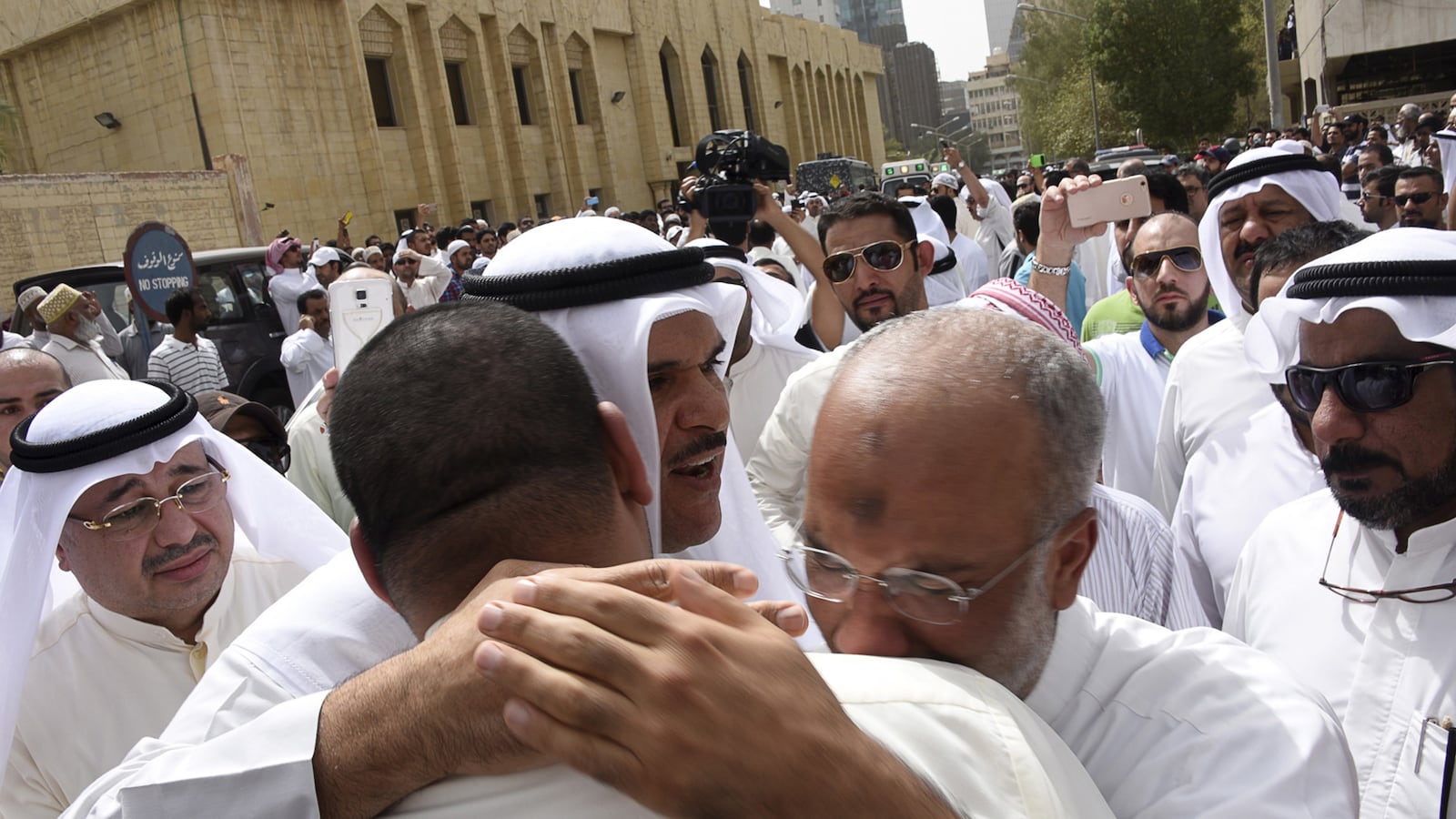Less than a week after the State Department had described Kuwait as “a valued partner” and had commended Kuwaiti authorities for apprehending a cell of 12 ISIS terrorists, ISIS claimed the bombing of a Shiite mosque in Kuwait.
At Friday’s noon prayer, usually overcrowded during the month of Ramadan, a suicide bomber detonated himself at the Imam Jaafar Al-Sadiq Mosque in the Sawaber neighborhood in downtown Kuwait City, less than a block away from the Kuwaiti Interior Ministry.
The mosque’s Imam Sheikh Abdullah Al-Mazeidi told the local media that the ISIS terrorist stood in the back rows. As the prayer was nearing its end, the suicide bomber detonated himself, killing 28 and injuring 202.
According to media reports, the Interior Ministry had “confirmed information” that ISIS militants planned to enter the country illegally by land and through seaports, and had accordingly placed its security personnel on high alert in anticipation of possible ISIS attacks.
The State of Najd, an affiliate of ISIS in the northeastern part of the Arabian Peninsula, claimed responsibility for the bombing. In a statement, the group said that “one of the troops of the Caliphate,” the “honorable Sunni Abu-Moussa Al-Mowwahed (the monotheist), carrying a (suicide) belt of dignity, targeted a temple of the infidel Shiites, shouted Allahu Akbar, and blew their pathetic crowd.”
Social media later reported that the man was allegedly a Saudi national, without identifying his name. Footage from the mosque’s security cameras showed a man in a white traditional robe and headdress holding his abdomen and joining the prayer late.
State of Najd endorsed similar attacks on Shiite mosques in eastern Saudi Arabia over the past weeks. It accused the Kuwaiti mosque of spreading the Shiite thought of Hezbollah and of converting Sunni Kuwaitis to Shiism. The group threatened Kuwaiti Shiites with more attacks.
The mosque attack, the first of its kind in Kuwait, prompted the country’s 86-year-old Emir Sheikh Sabah Al-Sabah to visit the site.
And while Kuwaitis lined up in front of hospitals to donate blood to the injured, Parliament Speaker Marzouq Al-Ghanem, ministers and lawmakers, both Sunni and Shiite, also showed up to denounce ISIS and the bombing.
The Shiites are Kuwait’s largest minority, counting one-third of the country’s 1.1 million population. Kuwaiti Shiites occupy seats in parliament, the cabinet and senior government positions. Unlike most other Arab countries, where politicians line up along sectarian lines, political fault lines in Kuwait have been more about city dwellers versus Bedouin tribes.
However, the high fervor of Sunni-Shiite tension around the region seems to have stirred a few Kuwaitis to catch up with part of the action, prompting the government to crack down on those who showed signs of sympathy with ISIS or other terrorist groups.
In 2014, according to the State Department’s Counter-Terrorism Report, the Kuwaiti government “began issuing weekly circulars to all mosques with approved language for Friday sermons and instructions to avoid extremist or sectarian language.”
The government also began broadcasts of “Kuwait Youth Radio,” which included “public service announcements promoting social cohesion and religious tolerance.” Kuwait further “announced the formation of a Higher Commission for the Promotion of Moderation, the main goal of which was to counter violent extremist ideology through education.”
Despite the government’s measures, some Sunni imams—most of them from Egypt—did not abide by the new regulations. By the end of 2014, the Kuwaiti government had deported 16 of the Sunni imams for their noncompliance.






